Ghost of Tsushima Review in 2025 — Five years after its release, Ghost of Tsushima remains a breathtaking journey through beauty, honor, and sacrifice. It is a cinematic masterpiece whose storytelling still feels untouchable in an age of endless sequels.
A Timeless Tale of Honor and Change
When Ghost of Tsushima released in July 2020, developed by Sucker Punch Productions and published by Sony Interactive Entertainment, it quickly became one of PlayStation’s most defining exclusive titles. Now, five years later, with its spiritual successor Ghost of Yotei released, it is the perfect time for a Ghost of Tsushima Review in 2025. The game stood out in an era crowded with open-world titles, not just for its swordplay or visuals, but for how it wove art and emotion into a story about honor, sacrifice, and identity.
Even in 2025, Ghost of Tsushima remains a benchmark if you are looking for narrative-driven experiences in gaming. As newer games chase innovation, few have captured the same meditative rhythm, a tale that invites you to slow down, breathe, and reflect. It is not about conquest, but consequence. Revisiting it now, especially after Ghost of Yotei, only deepens that appreciation.
A World Painted in Motion
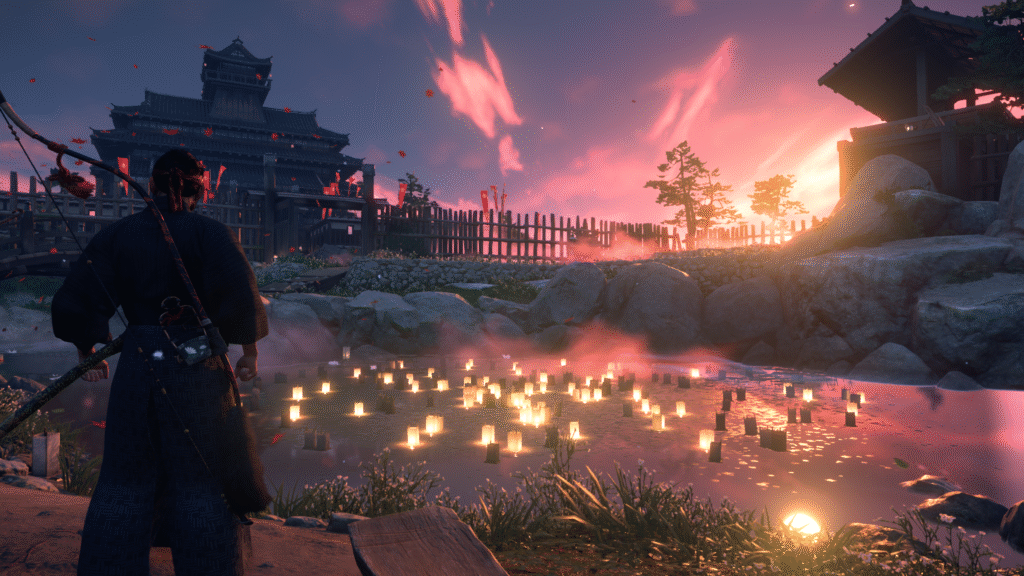
Visually, Ghost of Tsushima is one of the most stunning games ever made. Especially at the time of its release. It may not be as hyper-realistic as Red Dead Redemption 2, or even Assassin’s Creed Shadows, but it is far more beautiful. Every frame feels like a moving painting, a living, breathing artwork inspired by Japanese scrolls and Akira Kurosawa’s filmic legacy. Critics often said it is not realism that defines its beauty, but intentional artistry.
From the crimson leaves fluttering through sunlight to the fog-shrouded temples that dot the hills, every scene is composed like a historical painting you have stepped inside. The game does not just simulate nature, it romanticizes it. Even five years later, the wind-blown landscapes of Tsushima feel unmatched in atmosphere. It is one of those rare worlds where you pause just to admire how beautifully the sunlight touches a blade of grass.
Real People, Not Perfect Heroes
One of the reasons Ghost of Tsushima stands apart from most AAA games is its grounded characters. Jin Sakai is not your typical charming or handsome protagonist. He is stoic, often awkward, and sometimes described as “boring” by players used to flashy heroes, but that is what makes him human. He feels like someone you might actually meet in real life.
The same realism extends to everyone around him. Yuna, the thief who helps Jin embrace his identity as the Ghost, is not your perfect beautiful heroine either. She is weathered, a bit self-concerned and morally gray, and tired of noble ideals that never saved anyone. Even the mentor figures such as Sensei Ishikawa, Lady Masako, and Uncle Shimura are deeply flawed. Ishikawa’s pride isolates him and even makes him willing to risk a village to get his vengeange on his student Tomoe, Masako’s vengeance blinds her and she even attacks Jin upon feeling that he is an obstacle in her revenge journey, and Shimura’s rigid adherence to honor makes him among the most tragic characters who annoys us at times and reminds us of our older generations who won’t listen to reason no matter how logically we present it to them.
Shimura’s arc is the most powerful and tragic at the same time. He is not evil; he risks his life fighting for his people, but his unwavering loyalty to the samurai code blinds him to the suffering of his people and his own nephew. The conflict between Jin’s pragmatic compassion and Shimura’s rigidity and traditional views define the emotional heart of the story.
Ghost of Tsushima – A Story Beyond War
What begins as a typical war narrative, defending Tsushima island from the Mongol invasion of the 13th century, slowly evolves into something much deeper. It is not just a story of victory, it is a story about the cost of being a hero.
As Jin’s journey progresses, the game transforms into a meditation on morality. His decision to use poison against the Mongols to prevent casualties and win the battle easily saves countless lives but also introduces an unforeseen consequence. The Mongols learn to use the same poison against Tsushima’s civilians. The hero’s act of pragmatism becomes the very weapon that harms his people.
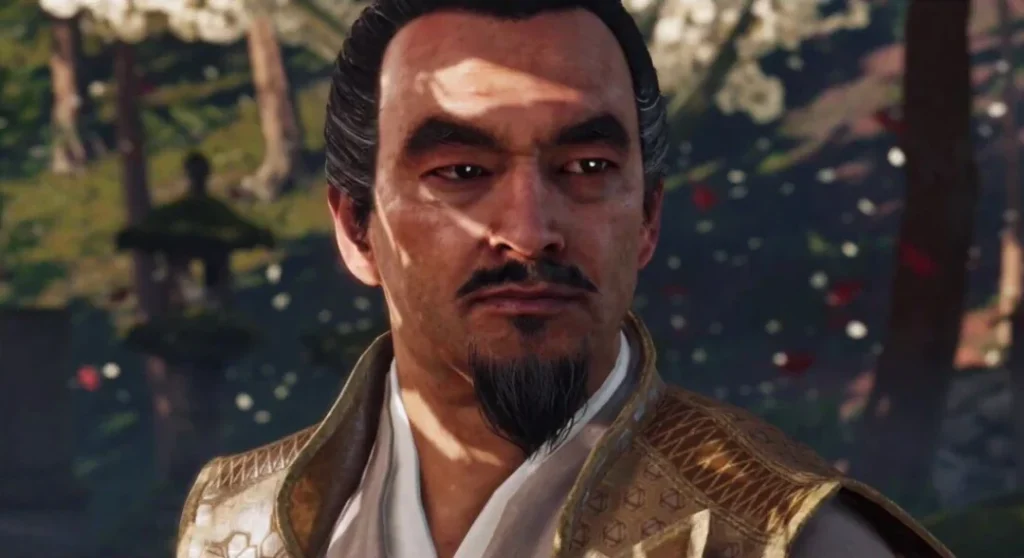
This shows that even though Uncle Shimura’s rigidity seems cruel, he is not entirely wrong. His warning that Jin must not “become like the enemy” carries truth. But Shimura crosses the line when he imprisons Jin and later hunts him under the Shogun’s orders, a decision that costs them both their humanity. The ending does not offer comfort. We don’t get your typical perfect happy ending like in most games. Jin saves his homeland but loses everything, his family, his name, and his honor. It is this quiet tragedy that makes the story in Ghost of Tsushima so unforgettable.
The story does have a few weak moments, and one of the most noticeable involves Ryuzo’s betrayal. His decision to turn against Jin because his men were starving feels unconvincing and quite shallow, especially given his long friendship with Jin and Jin’s ties to Lord Shimura. If Ryuzo had chosen to stand by Jin, it is only logical that Shimura would have ensured his men were fed and looked after once the island began to recover.
Trusting Khotun Khan, a brutal invader, over Jin and Shimura makes zero sense. Even if we grant the possibility that Ryuzo and his men were vegetarian, in wartime it would still have made more sense to hunt or fish for food than to switch allegiance to a brutal invader for a few sacks of rice. That choice makes what should have been a tragic turn feel oddly hollow. Ronin were disgraced or masterless samurai, not ascetic monks following strict Buddhist dietary codes. They lived by practicality, not by purity. Survival was their creed, not renunciation.
Many would also argue that Shimura’s hardcore rigidity to the samurai ideals is not historically accurate either. The version of Bushido or samurai honor code that most people recognize today, with its rigid sense of honor and moral purity, actually took shape much later during the peaceful Edo period (1603–1868). In the 13th century, samurai were far more pragmatic, valuing survival and victory above the romantic ideals of honor that would only be codified centuries afterward.
In reality, a 13th-century samurai lord would have been far more pragmatic, concerned with tactics, land, and alliances rather than philosophical purity. But one could argue that although unrealistic and historically inaccurate, in storytelling terms, Shimura’s code represents the emotional conflict as the heart of the game i.e. tradition versus change, honor versus compassion.
However, while technically excellent, it does not stay in memory the way the music of games like The Witcher 3 or Expedition 33 does. I found it atmospheric but not something I would hum afterward. In fact, when I try to recall, I find it hard to remember how the music and soundtracks even were. The compositions elevate the mood and fit the world perfectly, but they rarely take center stage. The music serves the story, but it never overshadows it. In a way, that restraint mirrors Jin himself: silent, patient, and deliberate.
Cinematic Combat That Tests Patience
The combat in Ghost of Tsushima is one of its biggest strengths and occasionally it can also be one of its frustrations. It is smooth, cinematic, and deeply satisfying. The standoffs, parries, and duels are some of the most visually graceful sword fights ever created in gaming. Every swing feels deliberate, and the combat system rewards precision and timing rather than button mashing.
Yet even on the easiest difficulty, the game can get punishing at times. Especially at the final act, during the assault on Khotun Khan’s fortress, the balance tips from challenging to exhausting. The repetitive waves of enemies and the multi-phase boss battle against Khan can feel more tedious than triumphant. Storywise, it is also a little unrealistic how Jin single-handedly cuts through dozens and dozens of Mongol soldiers. The gameplay’s cinematic beauty occasionally clashes with believability.
Still, it is impossible to deny the thrill of those tense standoffs especially when Jin and Khotun Khan face each other, blades drawn, and the world goes silent. Few games make combat feel so intimate and poetic, even if it sometimes sacrifices realism.
Could Ghost of Tsushima Have Been More
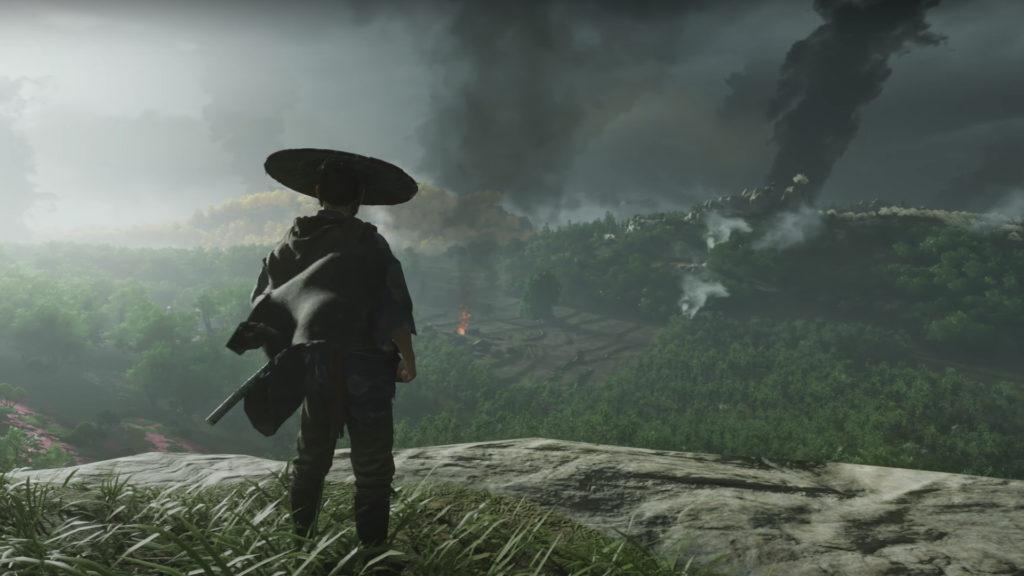
Although Ghost of Tsushima is a linear action-adventure game rather than an RPG, I could not help but imagine how powerful it could have been with moral branching. The story could have allowed players for a choice during the end of Act II: follow Uncle Shimura’s path of honor or Yuna’s pragmatic way and remain the Ghost.
Imagine if the player could shape Jin’s destiny, stay the honorable samurai, and eventually losing Yuna but keeping his title, or embrace the Ghost, saving the people but forsaking his title forever. If Jin had remained true to the samurai code and lost Yuna in the process, the emotional weight would have been equally devastating as to losing his uncle. He would have kept his position but lost his soul, angry, broken, and forever haunted by his decision to stay loyal to Uncle Shimura.
This kind of choice-driven storytelling could have deepened an already masterful narrative. Even without it, the ending we got remains powerful, but the idea of what could have been lingers, just like Jin’s ghostly legacy.
Ghost of Tsushima vs Ghost of Yotei
Five years later, Ghost of Tsushima vs Ghost of Yotei has become a fascinating discussion among players. The newer title might offer technical advancements and gameplay refinements, but Ghost of Tsushima still holds an emotional edge that Yotei cannot quite replicate. The original feels timeless, its story lingers long after the credits roll.
When comparing Ghost of Tsushima vs Ghost of Yotei, it becomes clear that the former was about personal transformation amidst an international war, while the latter is a personal story of revenge and its cost. Ghost of Tsushima was not just a war game about saving an island and winning a war, it was about redefining what it means to be a samurai and a hero.
In this Ghost of Tsushima Review in 2025, I can confidently say that the game’s storytelling remains quite impactful. It is a work of art that balances heart and honor, beauty and brutality. Even after five years and a spiritual successor, Ghost of Tsushima continues to whisper through the winds of gaming history, a ghost that refuses to fade.

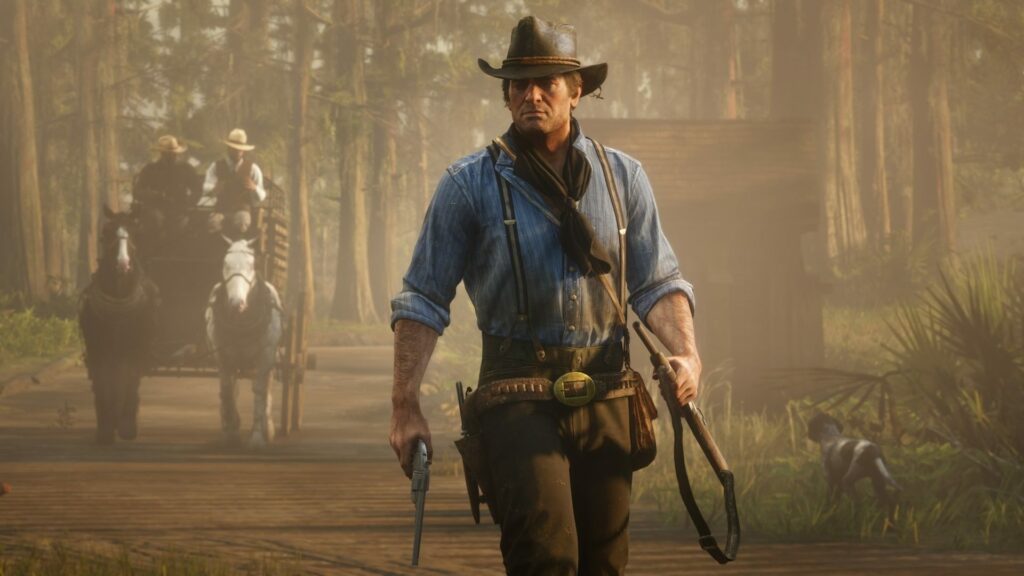
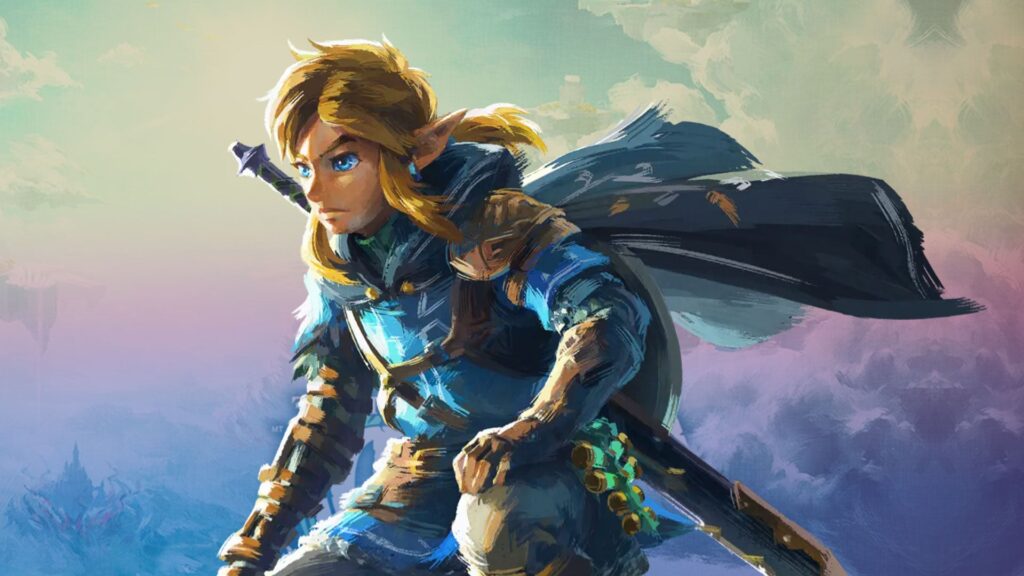
Pingback: Cinematic Masterpiece or Overcooked Ambition? What do Ghost of Yotei Reviews and Players Reactions say - Cinematic Gamers